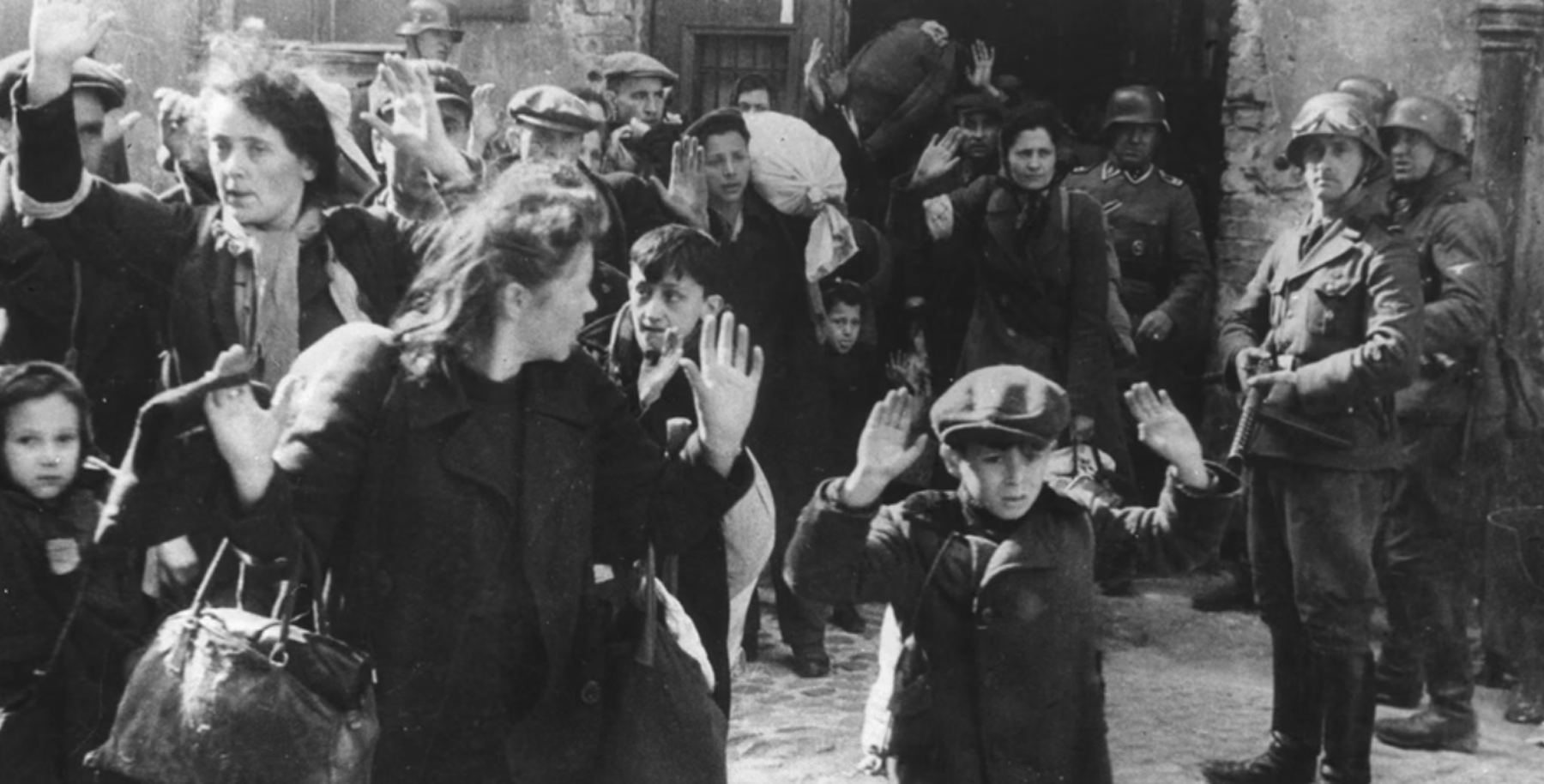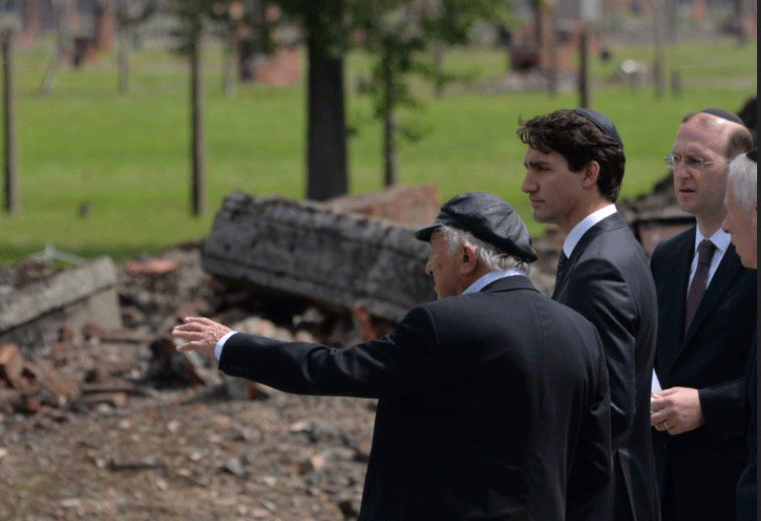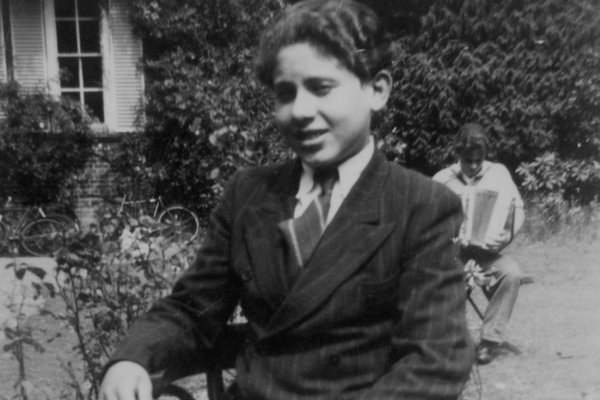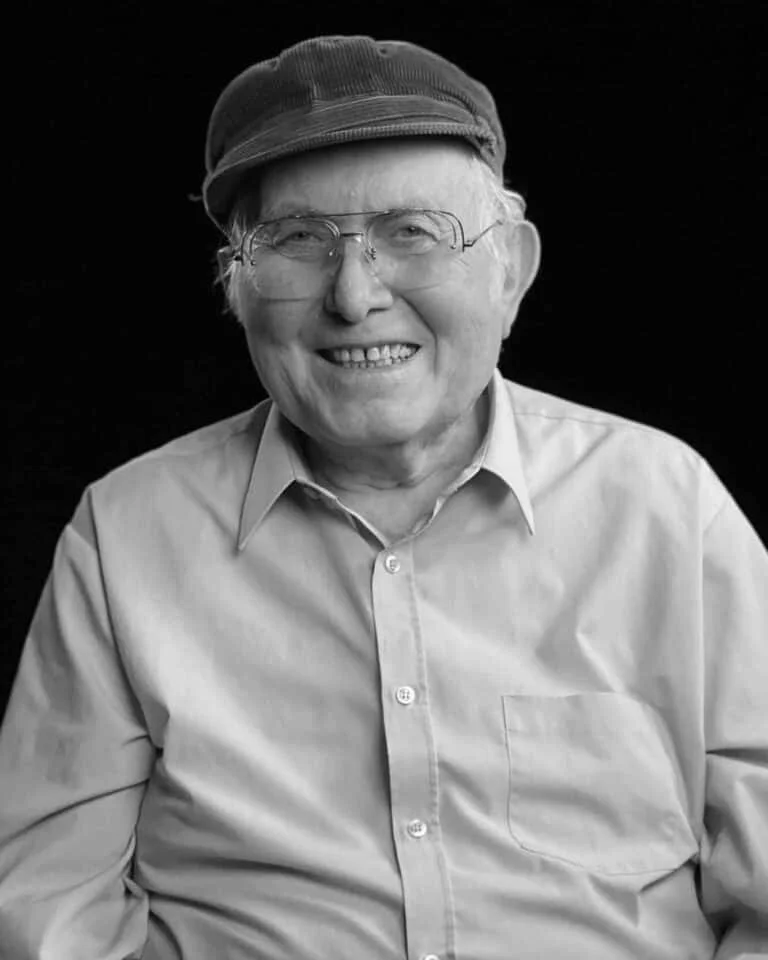
Liberation Stories of Canadian March of the Living Survivors
Holocaust Survivor Elly Gotz Tells Liberation Story to March of the Living

Voices of Liberation
"Voices of Liberation" had its premiere in Auschwitz-Birkenau on 'Yom HaShoah' (Holocaust Memorial Day), April 16th, 2015, during the March of the Living—archival footage courtesy of the Toronto Holocaust Museum, March of the Living and the USC Shoah Foundation.
Directed by: Matthew Shoychet
Produced by Eli Rubinstein
Music by: Ryan Shore
Twice Liberated
88-year-old Joe Mandel, a Holocaust survivor originally from Munkacs, Hungary, now living in Toronto, Canada, never shared his Holocaust experiences with anyone until he took part in the 2012 March of the Living. In this moving segment, Joe's return to Eastern Europe yields a most surprising and welcome reunion.

Holocaust Survivor Nate Leipiciger
As a child survivor who encountered the Nazi occupation at age 11, I was deprived of schooling, worked since age 12, survived two ghettos, was incarcerated in Auschwitz at age 15, experienced seven death and concentration camps, and lost most of my family, I feel a moral obligation to speak on behalf of those millions who did not survive.
Although I was involved for 20 years in many aspects of Holocaust Remembrance, Education, and Commemoration, the March of the Living gave me a unique opportunity to share my story of suffering, loss and survival with thousands of participants of all ages.”
Nate Leipiciger with Canadian Prime Minister, Justin Trudeau
“As a survivor and educator, nothing can be more rewarding than telling my story in the barracks of Birkenau and seeing the understanding and compassion written on the tear-stained faces of the participants. I know they have become the new witnesses who will carry the story of the Shoah to the next generation.”
Holocaust Survivor Pinchas Gutter Shares Liberation Story with March of the Living
Pinchas Gutter was born to a Hasidic family in Lodz, Poland, on July 21, 1932. He grew up in a religious Jewish community alongside his twin sister, Sabina. Within a month of the Nazis’ 1939 invasion of Poland, the Gutter family, under false Christian identity, moved to Warsaw to avoid danger in their hometown. The family was interned in the Warsaw Ghetto, where they hid in a bunker during the April 1943 Warsaw Ghetto Uprising.
They were eventually discovered and deported to the Majdanek concentration camp, where Pinchas’ parents and sister were murdered. Pinchas was then transferred to forced labour camps in Skarzysko-Kamienna and Tschenstochau-Rakow, Poland and later to the Buchenwald and Colditz concentration camps in Germany. From Colditz, he was sent on a death march to the Theresienstadt ghetto in Czechoslovakia (now Czech Republic).
Pinchas was liberated from Theresienstadt by the Red Army in May 1945. After the war, Pinchas lived briefly in the United Kingdom, where he married his wife Dorothy, and then in Israel, before settling in South Africa for many years. He then immigrated to Canada in 1985 where he served as a lay chaplain at the Baycrest Jewish Home for the Aged in Toronto and as an honorary cantor at his local congregation.

Like Angels From Heaven:
Faigie Libman's Liberation Story
Faigie Libman is a Holocaust survivor from Kaunus, Lithuania. She is a frequent and beloved speaker and Holocaust educator in Toronto for the Neuberger Holocaust Education Centre and on educational trips to Poland, including the March of the Living, March of Remembrance and Hope, and the Living Legacy Experience programs. Her story is also featured in a recent children’s book called “The Doll.”
Faigie Schmidt Libman was born in Kovno (Kaunas), Lithuania, in 1934. After the Nazi occupation of Lithuania in June 1941, she and her family were forced into the Kovno ghetto in the suburb of Slobodka.
When the ghetto was liquidated in July 1944, she was taken with her family by cattle car to the Stutthof concentration camp. From there, her father was sent to the Dachau concentration camp. In Stutthof, Faigie dug trenches while her mother worked as a nurse. They were later sent to three small forced labour camps: Trunz, Merzen and Lubicz. They were forced on a death march from Lubicz and were liberated near Danzig (now Gdańsk, Poland) on January 21, 1945, by Soviet soldiers. Faigie’s father did not survive. Faigie and her mother were in a displaced persons (DP) camp in Austria until 1948, when they were able to immigrate to Montreal. Faigie married Benny Libman in 1954 and they raised a family, moving to Toronto in 1972. Faigie worked in early childhood education until her retirement, and she has been involved in Holocaust education since 1989.





